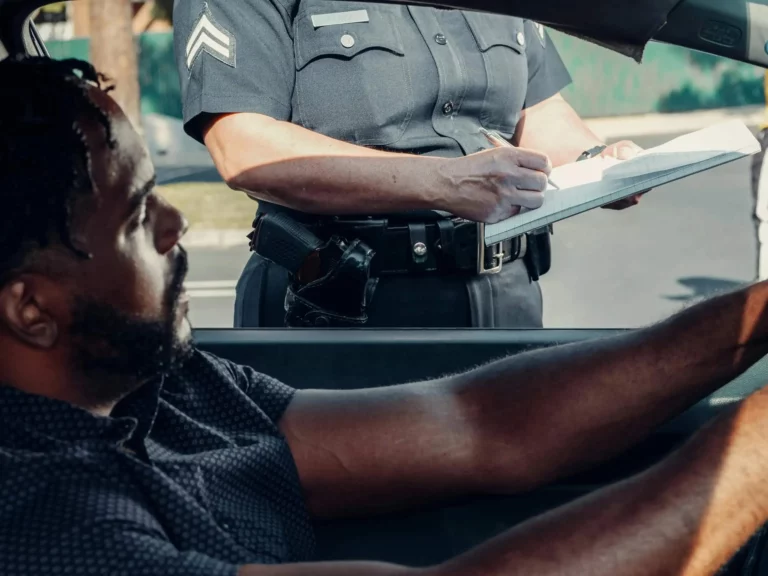Find Out the Truth to Common Criminal Justice Myths and Misconceptions from Experienced and Savvy Criminal Lawyers
Criminal law is often confusing and complicated, and many people have come to believe some crazy things. Does my case get dismissed if an officer didn’t read me my rights? What if the officer said he wasn’t a cop? Sometimes the answers are clear and sometimes they are complicated. Rumors and misconceptions do not make it any easier to untangle the truth. If you or someone you know has had a run-in with the law, or maybe you are just looking to win a bet, here’s the abbreviated version of the truth about the most common myths that our defense lawyers have to confront every day:
Myth Number One: A case must be dismissed if law enforcement did not read you your rights.
FALSE! The rights referred to are your Miranda rights, which spring from the U.S. Supreme Court case Miranda v. Arizona and are meant to inform you of certain rights that you possess while in police custody. These rights derive from the Fifth and Sixth Amendments of the United States Constitution and apply during custodial interrogation. They include the right to remain silent and the right to an attorney. Your case may be dismissed if law enforcement did not inform you of your rights and Miranda applied–but only if, as a result of that violation, evidence is suppressed, and as a result of that suppression the State has insufficient evidence with which to continue the prosecution.
In order for Miranda to apply you must be found to be in custody, meaning that the evidence was gathered at a time when you were either under arrest or your freedom of movement was restrained such that a reasonable person would not have felt free to leave. In addition, the evidence must either have been a product of interrogation or conduct that was similar in quality to interrogation and it must have been conducted by an agent of the State.
If you are formally arrested, you are in custody. If you are not formally arrested, the custody answer is not so clear. If your freedom of movement is restricted by law enforcement, the question is whether a “reasonable person” would believe they are under arrest. If an officer stops you momentarily while you are driving or walking, you are likely not in custody for the purposes of Miranda. Similarly, you are not considered to be in custody if you voluntarily interact with law enforcement by going to a police station and answering questions if at that time you are aware that you can get up and walk away.
If you are in custody and police officers interrogate you without reading you your rights and if you answer their questions and your attorney can prove it, then your statements are likely to be suppressed. Rest assured, the experienced criminal defense attorneys at Kurtz & Blum, PLLC are keen to pounce on any violation of your rights. Just keep in mind that the sole fact you weren’t read your rights when you were charged with a crime is far from a “get out of jail free” card.
Myth Number Two: If you ask a cop whether he is a cop, he must tell you the truth.
FALSE! Cops don’t have to reveal their identity as cops, even if you ask them directly. Law enforcement officers are allowed to lie in order to make an arrest. They are taught how to lie. The courts have sanctioned police lying to suspects. That’s what undercover operations are all about. A police officer can and will tell you all kinds of things to get you to do or say something stupid.
It is highly effective in their investigation and interrogations to lie. If you find yourself being questioned by the police, call the savvy criminal defense lawyers at Kurtz & Blum, PLLC before you learn about police interrogation techniques first hand.
Myth Number Three: Convicted murderers get paroled after about seven years.
FALSE! Since 1994, the law in North Carolina has mandated that a life sentence is a life sentence. There is no parole if you are convicted of first degree murder and are sentenced to life. In North Carolina, life means life.
Myth Number Four: If a cop doesn’t show for court, your case will be dismissed.
GENERALLY FALSE BUT IT DEPENDS (or false on average 3 out of 4 times). In traffic, DWI, and Misdemeanor cases, the decision whether to continue a case rests with the judge. Often your case will be continued several times to give the officer more chances to make it to court. If an officer is unable to make it into court and informs the court of his absence with a reasonable excuse, the judge will typically continue the case—especially if it is your first day in court. If no one is able to reach the officer, and no one has heard from him or her, the odds of the judge denying the State’s motion to continue your case are greater. If your case has already been continued and the officer fails to show, your chance of the judge denying a continuance increases even more. If the judge denies the State’s motion to continue and the prosecutor can’t make a case without the cop, then the prosecutor may be forced to dismiss the case.
Myth Number Five: If a police officer says your case will be dismissed, it will be dismissed.
FALSE! You should tread with caution anytime a law enforcement officer promises you anything. As long as you are a suspect, law enforcement can say all kinds of things that might sound like binding promises but are either short of enforceable promises or impossible to prove.
Actual plea bargains are formal agreements between you and the state that achieve a compromise between the State’s interest in enforcing laws and your constitutional rights. If you rely on the word of a prosecutor in an actual plea bargain to your detriment, the agreement is typically enforceable by the courts. Law enforcement officers, however, do not have proper authority to make deals that are binding on the State. It is exceedingly rare that courts have bound the State to a deal that was made by the police. So what happens when you rely on their word only for things to go badly?
Generally, relying on police promises without a defense attorney formally negotiating an agreement with a prosecutor will get you into big trouble. Reliance on this type of promise will likely be to your detriment. Before you even consider entering into any type of negotiation with police or even prosecutors for that matter, you should absolutely have a skilled and experienced criminal defense lawyer by your side.
Myth Number Five: If there is a minor mistake on the ticket, I win.
FALSE! Minor errors do not result in dismissal. They are not magic loopholes that get out of traffic tickets. So if there is a spelling mistake or the officer got the year of your vehicle wrong, do not expect a dismissal, at least due to that error. As a general rule, only fundamental charging errors, such as the police officer leaving out the name of an alleged victim in a larceny case, have that kind of impact. Police errors can add up, however, and at Kurtz & Blum, PLLC, we will use them to your advantage when possible. Be sure to tell your attorney about all the errors that you have discovered, just don’t make the mistake of assuming that the extra “e” that the cop put at the end of your name will guarantee that you will automatically and easily walk away from a DWI charge.
Myth Number Six: The law is the law; it is the same law from county to county and from courtroom to courtroom.
FALSE! It is true that all counties are governed by the same federal and state law but rules change from county to county and even from courtroom to courtroom. Wake County is supposed to follow the same law as every other county in North Carolina. However, each city and county can also have its own rules, ordinances and municipal codes. They can also have their own codified local rules that govern how the courts function in their judicial district. For example, in Wake County the Senior Resident Superior Court Judge sets amounts for presumptive bonds in criminal cases. As a result, a bond may be set according to completely different standards in Raleigh than it is in Durham.
Beyond differences in the written letter of the law from city to city and county to county, the way that different judges apply the law can also be hugely different from courtroom to courtroom. Some judges interpret the law differently than others and some laws lend themselves to different interpretations. Some judges might not be willing to accept plea bargains in certain types of cases and others might be just fine with them. This is but one of the many reasons why, if you are charged with any type of crime, a skilled and experienced criminal defense attorney is the greatest asset you can have. At the Raleigh firm of Kurtz & Blum, PLLC, we have over four decades of combined legal experience and we’ve been helping the people of North Carolina through some tough situations since 1998. We know the law and how it applied from county to county and judge to judge. Need help? Give us a call at (919) 832-7700.
Myth Number Seven: If a cop doesn’t show me his radar, my case will be voluntarily dismissed.
FALSE! The police don’t have to prove anything to you. Aside from that, radar is only one of the many different ways for officers to prove you are speeding. Other methods include: pacing, aircraft spotting, and laser ranging. Pacing occurs when a law enforcement officer trails behind you for some time, checking your speed against his calibrated speedometer. Aircraft spotting is done by having a predetermined distance, where the officer in the aircraft then times how long it takes you to travel the distance. Laser ranging is most similar to radar. It uses pulses of light, and the laser gun reads the difference in time between pulses.
Believe it or not, if a judge believes an officer who says they looked at your car and estimated your speed as being 80 in a 65 zone, the judge can find you responsible for speeding. There is no special requirement that police use radar at all.
Myth Number Eight: I can’t be convicted on the word of one person.
FALSE! People can and do get convicted on the word of just one person all the time.
Myth Number Nine: Eyewitness testimony is not evidence.
FALSE! Eyewitness testimony is indeed evidence. In fact, it is one of the most prolific forms of evidence. Anyone who witnesses a crime with their senses can then report on what they experienced in court. Unfortunately, eyewitness testimony can be unintentionally wrong, but it is still a viable and popular form of evidence.
Myth Number Ten: If I confess, the police won’t charge me.
FALSE! There is little more you can do to ensure that you get charged with a crime. If you confess, you likely hand the prosecution a slam dunk.
An officer may promise you that you will be better off if you confess. Unlike a prosecutor, the police do not have the ability to negotiate on behalf of the State. If they maintain only vague promises, there is nothing to enforce what law enforcement told you in exchange for your confession. This is not to say that there are never circumstances when you should admit guilt; however, there are no circumstances when you should confess to a crime without an experienced criminal defense lawyer.
Myth Number Eleven: Forensic science is actually science.
ALMOST COMPLETELY FALSE! The National Academy of Sciences recently published their findings and, aside from mitochondrial DNA testing, none of the other forms of “forensic science” have been subjected to peer review and proven via the accepted scientific method. CSI and other television shows have made forensic science appear impossibly accurate, when the truth of the matter is that the majority of the things passed off as science are no more than opinion.
There is a distinct difference between science developed carefully by the scientific method’s hypothesis, testing, analysis, and peer review process and science developed by law enforcement to find reliable ways of matching evidence to a suspect. Handwriting identification, fingerprinting, and ballistics were all specifically found to lack verification through the proper scientific method. Forensic science suffers terribly from analyst bias, a lack of established error rates, and a long history of overstating probabilities. It is a dangerous fallacy that forensic science has been somehow considered to be worthy of the same deference as actual science.
Myth Number Twelve: If they didn’t find the drugs on me, I can’t be convicted.
FALSE! Possession of drugs can be active or constructive. Possession is active if drugs are found on you, you are aware of its presence, and, either alone or with others, you have the power and intent to control its disposition or use. Constructive possession exists when you do not have actual possession, but still have the intent and capability to maintain control and dominion over the contraband. Only if the prosecution fails to prove beyond a reasonable doubt that you had either actual or constructive possession of drugs will you be found not guilty.
Circumstances that can lead to a finding of constructive possession include:
- Cops watched you drop what they later found to be controlled substances (also knows as a dropsy case).
- Your proximity to drugs.
- Whether or not you owned or occupied the location where drugs were found, or if you had control of the item in which the drugs were found.
- Your opportunity or lack thereof to move or dispose of the drugs where they were found.
- Whether any of your personal belongings were at the location of the drugs.
- Whether you fled or engaged in other suspicious behavior.
- Whether or not you engaged in drug activity or were impaired.
The bottom line is that if they can tie you to the drugs, you can be convicted. So even if you did not have drugs on your possession, call a lawyer, call Kurtz & Blum, PLLC. We can help.
Myth Number Thirteen: If I never got out of the car while my friends committed a crime, I’m not guilty of that crime.
False! If you drive someone to a location knowing that they will be committing a crime, you are likely to be considered to be either acting in concert with them or an accessory before the fact to the crime. The punishment is the same either way. You can be found guilty of a crime just as if you went inside under the theory of accomplice liability.
Myth Number Fourteen: You have to answer a police officer’s questions.
False! You have the right to remain silent and you have the right to a lawyer. A simple rule to follow in encounters with police officers is to ask the officer if you are free to leave. If he or she replies that you are, the best thing you can do is to politely decline their request for information and walk away without answering any questions. If the officer replies that you are not free to leave, politely but firmly ask for an attorney and otherwise remain silent. At your first opportunity, call the seasoned criminal defense attorneys at Kurtz & Blum, PLLC. We’re in your corner.
Contact the Criminal Defense Attorneys at Kurtz & Blum
Our North Carolina criminal attorneys help people throughout Wake County, North Carolina. We frequently handle offenses arising out of the following cities: Knightdale, Holly Springs, Raleigh, Apex, Zebulon, Garner, New Hope, Morrisville, Wake Forest, Wendell, Cary, Rolesville and Fuquay-Varina.
Contact us today for a no-risk consultation.


















